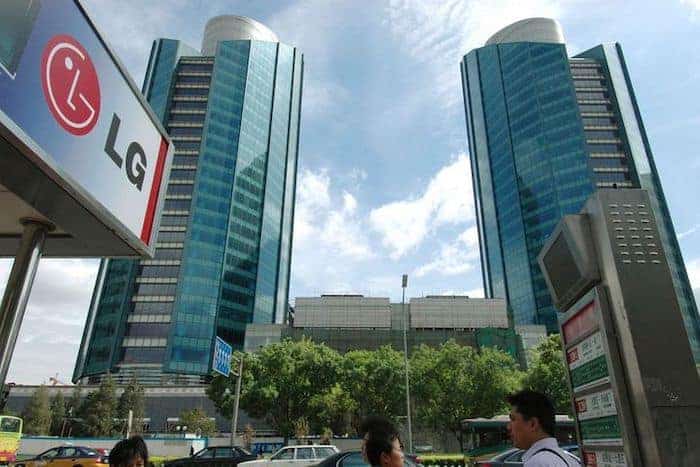
GIC closed on its purchase of the LG Twin Towers in Beijing during Q2
Covid-19 has sickened Asia’s property sector as it raises uncertainty and impedes economic activity this year, but one market in the region saw transactions of real estate assets nearly double in the most recent quarter after lockdown restrictions were eased.
Sales of investment properties in China increased 95 percent during the second quarter of 2020, compared to the same period a year earlier, making it the only major Asia Pacific market to report positive deal growth so far this year, according to a recent analysis of property purchases by data provider Real Capital Analytics.
China’s great leap upward, which followed a near standstill during the first three months of the year, stands out all the more as deal volume across the region fell by an average of 37 percent in the three months ending 30 June, compared to the same period in 2019. Over the three month period, trades of real estate assets totalled roughly $28 billion (HK$217 billion), according to RCA.
Top Markets Prove Resilient
In the midst of this downturn, China’s spike in property deals comes after a nearly 50 percent slump in transaction values in the first quarter.

David Green-Morgan of RCA
“We saw real estate investment, in general, hold up much better in the bigger markets than secondary ones in Asia Pacific [last quarter],” David Green-Morgan, managing director of RCA’s APAC operations, said in a statement.
Green-Morgan went on to point out the resilience of not only the mainland’s top cities of Beijing and Shanghai, where lockdowns were limited in duration but also in Japan and South Korea, where RCA expects to see a further upswing in deals closing during the second half of 2020.
China’s jump in property deals during the recent period was helped along by a particularly stagnant second quarter of 2019, with deals during that three-month term having fallen 19 percent compared to the second quarter of 2018.
Beijing, Shanghai Weather Storm
In Beijing and Shanghai, mainland China’s primary markets for trades of investment properties, several major office and retail building transactions took place in the second quarter, including a number which had been drawn out since late 2019 by the coronavirus pandemic which paralysed transactions during the first three months of this year.
In Beijing three major en-bloc investment deals were concluded for a combined RMB 12.76 billion during the period from April through end of June, including Singaporean sovereign wealth fund GIC closing on its RMB 7.8 billion purchase of the LG Twin Towers in the Guomao area.
Also making RCA’s list of top Beijing transactions during the period were China Orient Asset Management’s acquisition of Zhonghong Plaza in Chaoyang district for RMB 3.3 billion, and the joint purchase of the Tongzhou district Grand Canal Centre retail building from Greentown China by state-run Beijing Investment Group and Aegean Group for RMB 1.6 billion.
Shanghai saw four major investment transactions totalling RMB 11.94 billion over the same period, the largest of which were in the city’s Huangpu district. In the South Bund area, Bank of Shanghai acquired an office building in the Greenland Bund Centre for RMB 4.85 billion, while Noah Holdings sold the Gopher Centre on Mingzi Road in the southern section of the district to Ping An Insurance for RMB 4.28 billion.
Also during the second quarter, HNA Group closed on its RMB 3.6 billion sale of the HNA Tower in Pudong to China Cinda Asset Management as the transportation group continued to liquidate assets.
China’s second-quarter upswing saw trades of properties reach more than $8.37 billion during the period to bring the country’s half-year total to just over $14 billion. That sum for the first six months still represented a 23 percent dip compared to the 2019 volume over the same period.
In addition to recovery from the first quarter’s lockdown, RCA noted that the mainland market saw a resurgence in transactions of office properties in China’s tier 1 cities during the first half of the year, with some analysts seeing purchases such the Greenland Bund Center transaction, which took place between the local government-controlled bank and a property developer controlled by city authorities, as a form of unofficial market support.
With China lifting some restrictions on foreign involvement in the financial sector RCA expects demand for office space to grow in the country’s largest cities, potentially further boosting demand for commercial assets.
Transactions Slow Across APAC
While the Chinese property market saw signs of growth, real estate deal activity in the broader region was subdued by pandemic-related lockdowns and travel bans.
Deal volume in Hong Kong fell 80 percent compared to the second quarter of 2019 to reach just $1.3 billion this year, while Singapore experienced a 67 percent plunge and Australia’s transaction value dropped by 44 percent to reach $1.7 billion and $4.7 billion respectively.
The volume of Japanese property deals held up comparatively well, reaching just over $7.37 billion in the period from April through June, to bring the country’s total to nearly $18.2 billion during the first half of 2020. Those numbers showed a 23 percent decrease year on year for the second quarter and a 17 drop for the period from January through 30 June compared to the same six months of 2019.
Korea, which had weathered the coronavirus effectively early in the year, saw property trades drop to just less than $2.98 billion during the second quarter, which represents a 50 percent drop from 2019. For the first half of the year, real estate investment transactions were down 19 percent to reach just over $8.1 billion.
Subsidy Sunsets Dim Outlook
While most markets in the region have now emerged from lockdowns, asset owners may face a new threat as government initiatives to support businesses reach an end.
“With government and commercial support for real estate occupiers thinning out in the coming months, we can expect rental payments to fall further, adding more pressure on sellers to reduce their pricing expectations,” RCA’s Green-Morgan also noted.
In markets where governments have been more generous in supporting retailers, the end of rent support could mean more distressed sales, particularly in the retail sector where deal volumes fell by more than half across the region during the first six months of 2020.
Trades of retail properties fell by the largest margin of any asset class in the region, amounting to just $3.5 billion regionwide during the second quarter, which represented a 61 percent fall from the same period last year. Over the period from January through the end of June retail deals reached just $9.2 billion — some 54 percent less than in 2019.
By comparison, office transactions declined by 44 percent during the first six months of 2020 and industrial deals fell by just 4 percent in value relative to the first half of last year.
Leave a Reply